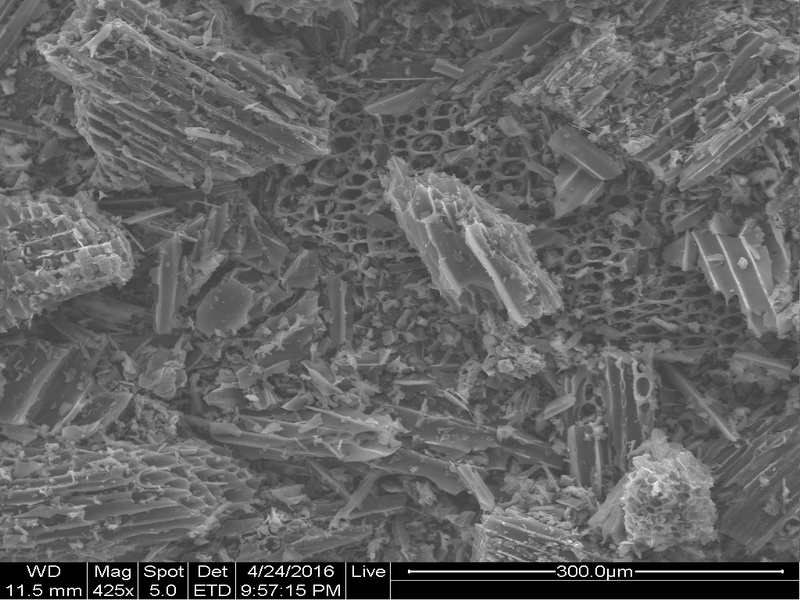
What is biochar?
Biochar is a soil amendment with the potential to revolutionize soil management, biomass waste and carbon sequestration. Biochar has been used in traditional agricultural practices for millennia, as well as in modern horticulture. Biochar has unique properties make it exceptional for sustainable soil management, effective con-version of biomass to energy and long term sequestration of carbon.
What does it do?
Biochar has outstanding characteristics significant to climate change and soil fertility. Nutrient and Water Affinity: Organic matter added to soil significantly improves soil functions, including retaining nutrients essential to plant growth Persistence: It is undisputed that biochar is much more persistent in soil than any other form of organic matter that is commonly applied to soil. Thus, all associated benefits with respect to nutrient retention and soil fertility are longer lasting than with alternative management or common fertilizers.
How is Biochar carbon-Sink?
Biochar can store carbon in soil for thousands of years, improving soil fertility and stimulating plant growth, which then consumes more Co₂ from the atmosphere. Heat produced from making biochar can be used or turned into electricity. Captured gas and liquid by-products can be used as fuels. Under decomposition or open burning, most Co₂ from biomass would be released back into the atmosphere. Biochar captures 50% of the original carbon in the biomass and stores it in soil. The net amount of Co₂ in the atmosphere from this process is thus reduced while enhancing soil fertility and displacing the use of fossil fuel based fertilizers, making the biochar process carbon Sink as long as biomass production is managed sustainably.
How is Biochar made?
Biochar is made by pyrolysis: heating biomass (wood chips or pellets, bark, manure, crop residues, etc.) with limited oxygen. Energy crops , such as short-rotation woody plants or grasses, can be grown for biomass, or biomass waste can be collected.
What is produced besides charcoal?
Heat for heating or conversion to electricity. Hydrogen and carbon monoxide (both combustible gases) and bio-oil are additional energy bioproducts. Carbon sequestration for 1000 nds of years. Biochar-amended soil reduces the total fertilizer requirements and the climate and environmental impact of croplands. Char-amended soils have 50-80% reductions in No2 emis-sions and reduced runoff/leaching of phosphorus and nitrogen into surface and groundwater. Biochar enhances crop yields two to three times. Heat produced from pyrolosis can generate electricity and provide heat. Family sized installations can provide cooking, heating and hot water. Large scale facilities can provide power and heat for industrial or community applications. Biofuels and gases (CO and H) and liquids released during pyrolosis are valuable fuels.
what's it cost?
Heat for heating or conversion to electricity. Hydro-gen and carbon monoxide (both combustible gases) and bio-oil are additional energy bioproducts. Carbon sequestration for 1000’s of years. Biochar-amended soil reduces the total fertilizer requirements and the climate and environmental impact of croplands. Char-amended soils have 50-80% reductions in NO2 emis-sions and reduced runoff/leaching of phosphorus and nitrogen into surface and groundwater. Biochar enhances crop yields two to three times. Combined heat and power— Heat produced from pyrolosis can generate electricity and provide heat. Family –sized installations can provide cooking, heat-ing and hot water. Large scale facilities can provide power and heat for industrial or community applica-tions. Biofuels—gases (CO and H) and liquids released dur-ing pyrolosis are valuable fuels.